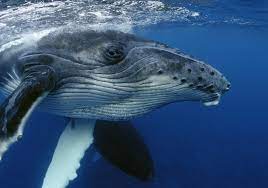Mediterranean Trees help Germany tackle Climate Change!!
Did you know that about 15 billion trees are cut down every year? In fact, there used to be 6 trillion trees on the planet once where now only 3 trillion remain. The World Economic Forum aims to restore it to the original number by first planting a trillion trees by 2030. We’ve often heard about the negative consequences of deforestation and how we must reverse that immediately. However, due to the already destructive impact of deforestation, restoration of forests has become quite a task.
For instance, climate change caused partly due to global logging of trees, has caused central Europe to become warm and dry, facilitating heatwaves and low rainfall in the region. These conditions breed pine beetles and other insects. In Germany, these insects have infested the native trees residing there like pine and oak. So, on top of the foreign climate, the pests render the native trees unable to survive. Thus, an attempt to restore Germany’s forests with the help of its native trees would be quite futile.
In order to be able to reach its goal of planting trees in the area, the World Economic Forum designed another alternative. It proposed planting trees more suitable to the new climate prevalent in Central Europe. In Germany, they’re planting Mediterranean trees. Thus, they experimented with downy oaks in Frankfurt City Forest. The trees are native to Southern France and are more suited to high temperatures and low groundwater and can resist pests. They also support the local biodiversity by housing the species within and around them and co-exist perfectly with the native trees. This makes them an ideal choice to increase the green cover in that area.
In just 9 years, the trees have grown up to 4 meters and have successfully survived 3 dry summers in a row. Summers in Central Europe are becoming hotter and drier, with more frequent and longer droughts. It is quite appalling that 11 of the continent’s 12 warmest years on record have occurred since 2000. In fact, a drought damaged 97% of all trees in the Frankfurt City Forest in 2018/19.
Scientists have called for forests to be restructured with drought- resistant species, keeping in mind how crucial they are to the climate fight, locking up carbon and protecting biodiversity.
The key to restore forests is planting the right tree in the right place, since new trees must be able to adapt to the changing conditions. In order not to weaken the ecosystems further, it's important to maintain biodiversity.
Alternative tree species must not only be more resistant to drought than pedunculate oaks but also endure the winters. These tree species should also take on the ecological functions of the ones lost. Hence, there is definitely some hope for the Mediterranean trees to survive and thrive in Germany. Hopefully the trees will help the soils to regain the deficit nutrients which have been eroded from the soil and provide a better air quality to Germany.




Well written and conveyed!! ✨
ReplyDeleteIndeed nature heals nature 😊
ReplyDeleteVery Well Written
ReplyDeleteWell done. Very informative
ReplyDelete